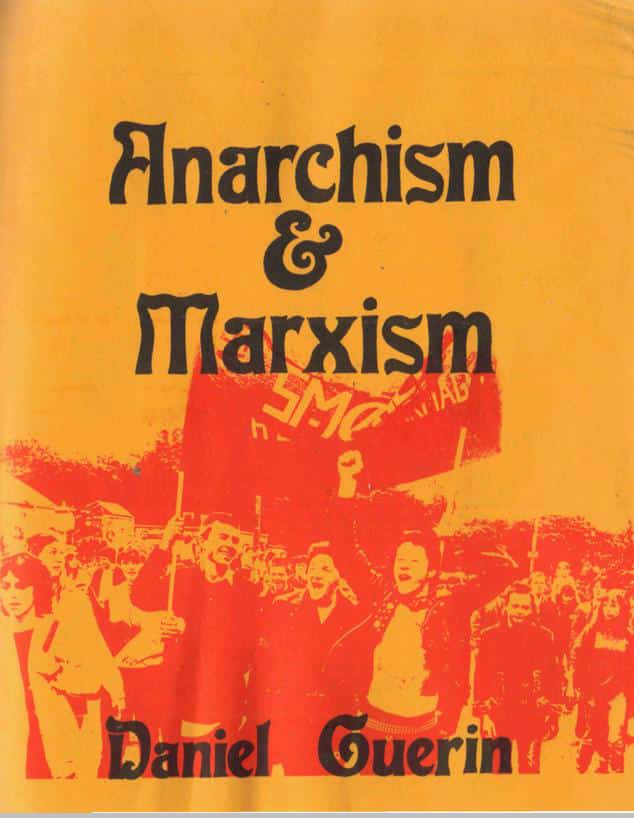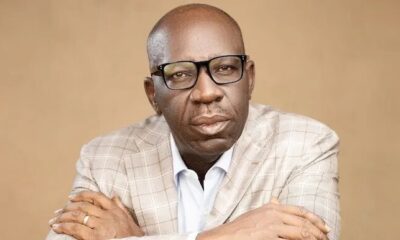Brand Matters
Anarchism & Marxism -By Daniel Guerin
Daniel Guerin defined who a Marxist is and which of the Marxist he is actually referring in his book for they are multidimensional versions of Marxism. ‘’Marxism is all of the material written by Karl Marx and Friedrich Engels themselves and not that of their more or less faithless successors, who have usurped the label of Marxists. To further explain this term, the author called those who have betrayed Marxism’’ distorted ones of the German social-democrats’’.

A review of a book of Sociology isn’t easy as many would think. Sociology is a censorious and unequivocally ardous discipline that commands earnest critical thinking, reading and evaluation as Charles Wright Mills summates it up with “sociological imagination”. The book “Anarchism and Marxism” written by Daniel Guerin begins with demystifying the concept of Marxism and Anarchism; by identifying the convergence and divergence between Anarchism and Marxism and scholars Who subscribe to Marxism and Anarchism.
Daniel Guerin defined who a Marxist is and which of the Marxist he is actually referring in his book for they are multidimensional versions of Marxism. ‘’Marxism is all of the material written by Karl Marx and Friedrich Engels themselves and not that of their more or less faithless successors, who have usurped the label of Marxists. To further explain this term, the author called those who have betrayed Marxism’’ distorted ones of the German social-democrats’’.
However, in 1859, when the ageing Engels while writing his famous preface to Marx’s Class struggle in France, did a complete revision of Marxism in a reformist prism and emphasizing the use of the ballot papers as the ideal way, if not the only way to take power and this reformism by Engels according to the author denounced him from being a true Marxist. There’s nothing like addition and subtraction to the actual views of Karl Marx. The call of Edward Bernstein who saw himself as a Marxist to Kautsky to renounce class struggle which to him is out of date, in favor of electoralism, parliamentarianism and social reform is another critical thing the critical Marxist will call distortion and betrayal.
The author further made the readers to understand that Rosa Luxemburg was the able theoretician in German Social-democracy who remained faithful to the original Marxism and of her open conflict with Kautsky on Marxism and Anarchism. Real Marxism was not only distorted by German social-democracy but was altered in a great measure by Vladimir Putin Lenin when he increased certain of the Jacobin and authoritarian traits which already appeared from a time to time, although not always in the work of Karl Marx and Friedrich Engels.
Arthur Berger in his book titled” Durkheim Is Dead” clearly avouched Lenin radicalism and dissidence from orthodox Marxism as Lenin introduced an ultra-centralism, a narrow sectarian concept of the party (with a capital P) and above all the idea of professional revolutionaries as leaders of the masses; and not many of these notions can be found in Marx’s writings, where they are no more than embryonic and underlying. Though, Rosa Luxemburg was the first marxist to use, in German, the word ‘’spontan’’ (spontaneous) in her writings, after having borrowed it from the anarchists, and to accent the predominant role of spontaneity in the mass movement.
The author further brought out the convergence of Anarchism and Marxism; and that if readers look closer they would discovered that in the past Anarchism and Marxism mutually influenced each other and Errico Malatesta, the great Italian Anarchist, wrote somewhere” Almost all the Anarchist literature of the 19th century was impregnated with Marxism. However, Marxism and Anarchism are not merely influenced by one another. They have a common origin. They belong to the same family.
Furthermore, materialists do not believe that ideas are born purely and simply in the brains of human beings. They merely reflect the experience gained by the mass movements through class struggle. The first socialist writers, as much anarchists as Marxists, together drew their inspiration first of all from the great French Revolution of the end of the 18th century, then from the efforts undertaken by the French workers, starting in 1840, to organize themselves and struggle against capitalist exploitation.
Anarchism and Marxism, at the start, drank at the same proletarian spring. And under the pressure of the new working class they assigned to themselves the same final aim, i.e. to overthrow the capitalist state, and to entrust society’s wealth, the means of production to the workers themselves. Such was subsequently the basis of the collectivist agreement concluded between Marxists and Bakuninists at the 1869 congress of the First International, before the Franco-Prussian war of 1870.
The author still discussing Marxism and Anarchism, takes the readers mind back to the French Revolution; the two very different sorts of revolution and the two contradictory varieties of powers, one formed by the left wing of the bourgeoisie, the other by a pre-proletariat (small artisans and waged workers). The first being authoritarian, nay dictatorial, centralized, oppressive to the unprivileged. The second being democratic, federalist, composed of what today we would call workers’ councils.
The writer further exclaimed that ‘’I am not afraid to say that this second power was essentially libertarian, as it were the precursor of the 1871 Paris Commune and the Russian Soviets of 1917, whereas the first kind was christened, (although only after the event, in the course of the 19th century) Jacobin.’’ What’s more, the word is incorrect, ambiguous and artificial. It was taken from the name of a popular Paris club, The Society of Jacobins, which itself came from the abbey of a monastic order in whose building the club was set up. In fact, the demarcating line of the class struggle between bourgeois revolutionaries on one side and unprivileged on the other passed inside and right through the Society of Jacobins. Put more plainly, at its meetings those of its members who extolled one or other of the two revolutions came into conflict.

The author returned back to Lenin and of how he later on showed himself to be much more of a Jacobin than his teachers, Marx and Engels. According to him, Jacobinism would have been “one of the culminating points the oppressed class reaches in the struggle for its emancipation”. And he liked to call himself a Jacobin, adding always: “A Jacobin linked with the working class.”
In the final of the book, the author brought out the divergence between Anarchism and Marxism and that the duo agree on the ultimate abolition of the State; the marxists believe it necessary, after a victorious proletarian revolution, to create a new State, which they call a “workers’ state”, for an indefinite period: after which they promise that such a State, sometimes labeled “semi-state”, would finally wither away. While on the contrary, the anarchists object that the new State would be much more omnipotent and oppressive than the bourgeois State, due to the statist property of the whole economy, and that its ever growing bureaucracy would refuse to “wither away”.
Book Title: Anarchism & Marxism
Author: Daniel Guerin
Publication Date:1981.
Publishers: Cienfuegos Press Ltd.
ISBN: 0-904564-43-6
Reviewer: Hassan Idris.



















